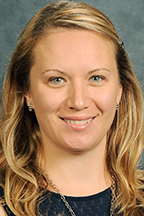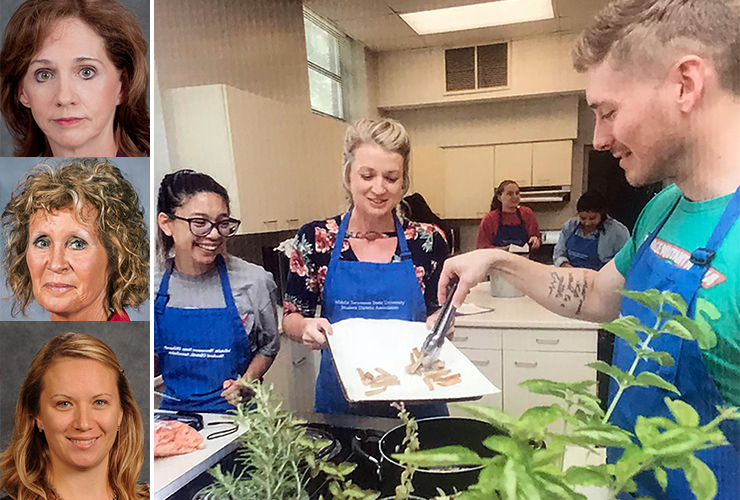An MTSU program will enable high school students to take courses this fall that will introduce them to the study of nutrition.
One of the classes is “Nutrition Across the Life Span,” which typically is taken in the sophomore year. Students take the exam in May after completing the high school class, and students who pass receive credit for MTSU’s “Principles of Nutrition” class.
The other class, “Nutrition Science and Diet Therapy,” typically is taken in the junior year. This class can be taken for dual enrollment and aligns with MTSU’s “Nutrition for the Health Sciences” class. As well as offering free college credit, completing dual enrollment classes may help students qualify for graduation with honors or distinction.

Dr. Janet Colson

Jaime Brown
“Nutrition Science and Diet Therapy” is more science-oriented than “Nutrition across the Life Span.” However, high school students may take either class as an elective during the senior year.
In addition, the students may take either of the MTSU classes, “Principles of Nutrition” or “Nutrition for the Health Sciences,” as dual enrollment students who go to other high schools.
“We typically have students from Siegel or Blackman (high schools) take one of the classes as dual enrollment without being affiliated with Riverdale or Oakland (high schools),” said Janet Colson, a professor of nutrition and food science in MTSU’s Department of Human Sciences and a registered dietitian.
As well as offering free college credit, completing dual enrollment classes may help students qualify for graduation with honors or distinction.
 Riverdale High School teacher Jaime Brown, an MTSU alumna, teaches some of those students. She said there were about 20 in her nutrition dual enrollment class last year. Brown said some students just want more information on how nutrition can help them be healthier personally, but others become fascinated with the field’s career possibilities.
Riverdale High School teacher Jaime Brown, an MTSU alumna, teaches some of those students. She said there were about 20 in her nutrition dual enrollment class last year. Brown said some students just want more information on how nutrition can help them be healthier personally, but others become fascinated with the field’s career possibilities.
“A lot of them are interested in a nutrition career, and a lot of them are just curious,” Brown said. “They just want to see what it’s about and what they can learn.”
“Some of Jamie’s students have actually worked as dietary aides for the national health care facilities,” Colson said. “She is very, very interesting, and she makes students want to learn and want to take her class.”

Dr. Elizabeth Ann Smith
Elizabeth Ann Smith, an assistant professor of nutrition and food science, said those students who develop an interest in nutrition as a career have a wide variety of options available to them.
“It does not have to be that you’ll actually go into a clinical setting like a hospital with sick patients,” said Smith, who also is a registered dietitian.
The nutrition courses were made possible by the Tennessee Pathways program, a collaboration among K-12 education, postsecondary education and employers to augment the state’s goal of helping more Tennesseans obtain college degrees or certificates.
For more information, contact Colson at janet.colson@mtsu.edu, Smith at elizabeth.ann.smith@mtsu.edu or Brown at brownjai@rcschools.net.
— Gina Logue (gina.logue@mtsu.edu)


COMMENTS ARE OFF THIS POST